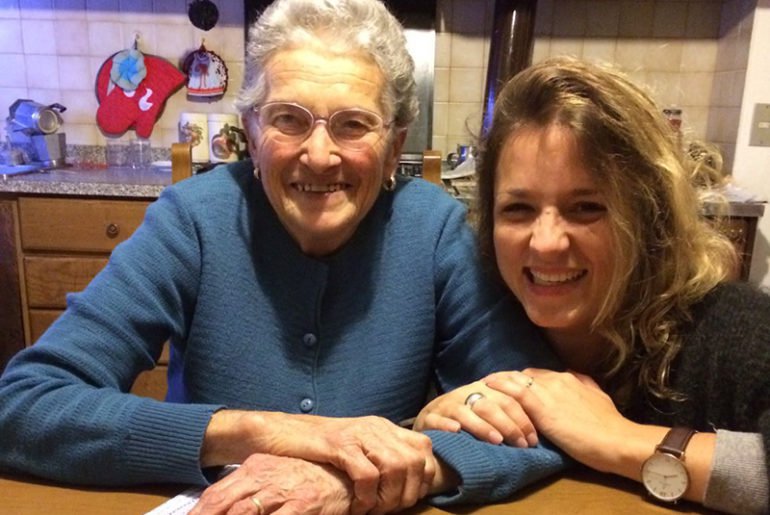
I just came back from Italy. I again witnessed how it’s all about our mind whether we improve in our target language abilities or not. It’s an attitude – a mindset (of course, we also need time and situations that involve the language. More on that in another post).
So I was in Italy with my mom to visit relatives. I understand a lot of Italian, I don’t have the confidence to speak though, and when it comes to dialects, even understanding is a big challenge. You can compare this to you understanding lots of German but (think) you understand no Swiss German.
We were sitting at the kitchen table with Dionisia, my mom’s godfather’s wife. And she started to tell my mom a story that had happened to her. I caught myself thinking ‘I don’t understand anything’ and immediately got lost in thoughts.
Mindful Listening
Since I am an avid mindfulness practitioner, I was happy to notice that mindfulness also applies to language learning, or better said, to listening skills. Typical mindful behavior: I notice that I am thinking, instead of thinking the thought, I come back to whatever I am doing in the moment. So I hear her talking, get lost in thoughts, notice that I am thinking, and get back to listening to her.
Focus on what I can understand
Ok, so always coming back to listening is great, but the thought of ‘I don’t understand anything’ is still quite loud and it’s frustrating. That’s where I applied a simple rule of mental strength studies: focus on what I can understand instead of what I cannot understand. And suddenly I realized, there is actually tons of things I can understand, even if it’s just random words or some kind of context. Let go of the thought that you need to understand everything.
Notice and ask
People always wonder how they can extend their vocabulary. And it’s actually by noticing first. Dionisia was using the word ‘magari’ so often that I asked my mom what it meant. After that, I heard it all the time and not only from her. Since I did not only hear it often but then also knew the meaning of it, it’s stored and I can remember it. This also means I directly learn the language that people actually use. In a traditional language class in Italy they would post probably not have taught me these words. That’s the way I would learn to speak as the people around me, which helps tons when wanting to connect with them.
Take advantage of opportunities
We have so many free language learning opportunities – we just have to seize them. I could have sat there at the table missing out on an entire free Italian class. Same happens when we hear people talking next to us. Just secretly listen to the conversation in the train, don’t tell your boot-camp instructor to switch to English (Emilia’s tip), and observe how many other opportunities you actually have around you.
Of course there is tons of things we can add to this list.
What are your thoughts? Does this help? Let us know!

 Be open-minded, connect with people and learn German
Be open-minded, connect with people and learn German It’s what you make of it
It’s what you make of it SHE STARTED IT: INTERVIEW WITH UNUMONDO LADIES
SHE STARTED IT: INTERVIEW WITH UNUMONDO LADIES